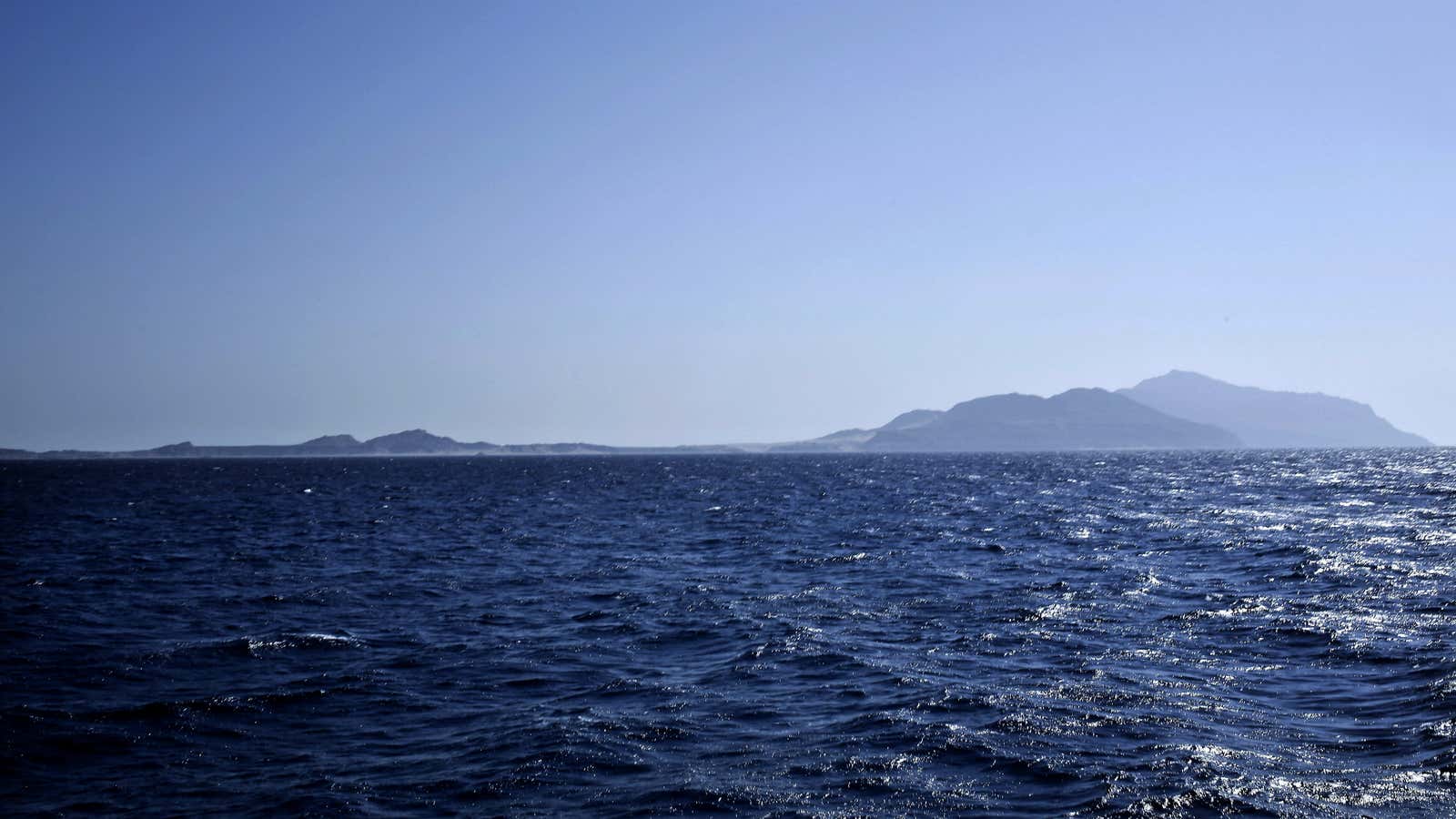The wrangle over two uninhabited islands in the Red Sea is shaping up to be the latest quandary facing Egypt’s government, threatening to pit its courts against its legislature, touching off a regional predicament, and possibly sparking a constitutional crisis.
On Wednesday (June 21), Egypt’s top court halted all verdicts to transfer the islands of Tiran and Sanafir to Saudi Arabia based on a controversial 2016 accord. The decision comes days after the country’s parliament voted to ratify the agreement—overlooking a January decision from a separate court that asserted Egypt’s sovereignty over the islands, saying the government failed to provide enough evidence of Saudi ownership.
The two islands are located on strategic waters and are unoccupied save for the Egyptian military personnel and multinational peacekeepers stationed there. Officials from both governments have argued that the islands were Saudi-owned and that they asked the Egyptians in 1950 to protect it. Lying four kilometers (2.5 miles) apart, the islands are entryways to the port of Aqaba in Jordan and Eilat in Israel. Israel also captured the island twice, once in 1956 and also during the six-day war in 1967, and returned them to Egypt both times.

But after six years of private negotiations, the announcement of the maritime demarcation agreement in April 2016 sparked protests in Egypt, with president Abdel Fattah el-Sisi being accused of selling the islands in exchange for Saudi largesse. The protests also fed into discontent over the country’s economic crisis, given the devaluation of the Egyptian pound, soaring food prices, cuts in state subsidies, and a huge drop in tourists since the Arab Spring protests of 2011. President Sisi has defended the agreement, warning against the “forces of evil” destabilizing his country and saying, “My mother taught me not to take other people’s things.”
The squabble between the courts and the legislature and the delay in the transfer of the islands to Saudi Arabia also deepens the rift between Sisi and his erstwhile financial backer. Last October, the Saudi government halted fuel shipments to the country under a $23 billion aid deal, leading to the steep depreciation of the Egyptian currency.
Issandr El Amrani, who oversees the International Crisis Group’s north Africa project, says that the parliament’s backing of the handover shows that there was “political urgency and pressure” from Sisi—who is still expected to ratify the law. The government also started cracking down and arresting protestors, and blocked more than 60 websites known to carry critical coverage in the weeks leading up to the vote in parliament.
If transferred, the deal could upend the relationship between countries in the region—namely between the Saudis and Israelis. The two countries do not have official diplomatic relations. However, the Israeli newspaper Haaretz reported that Egypt informed Israel in advance of its intention to transfer the islands to Saudi Arabia. And while the transfer would not imply mutual recognition, observers say the two countries will likely handle any issues through discreet, unofficial channels.
